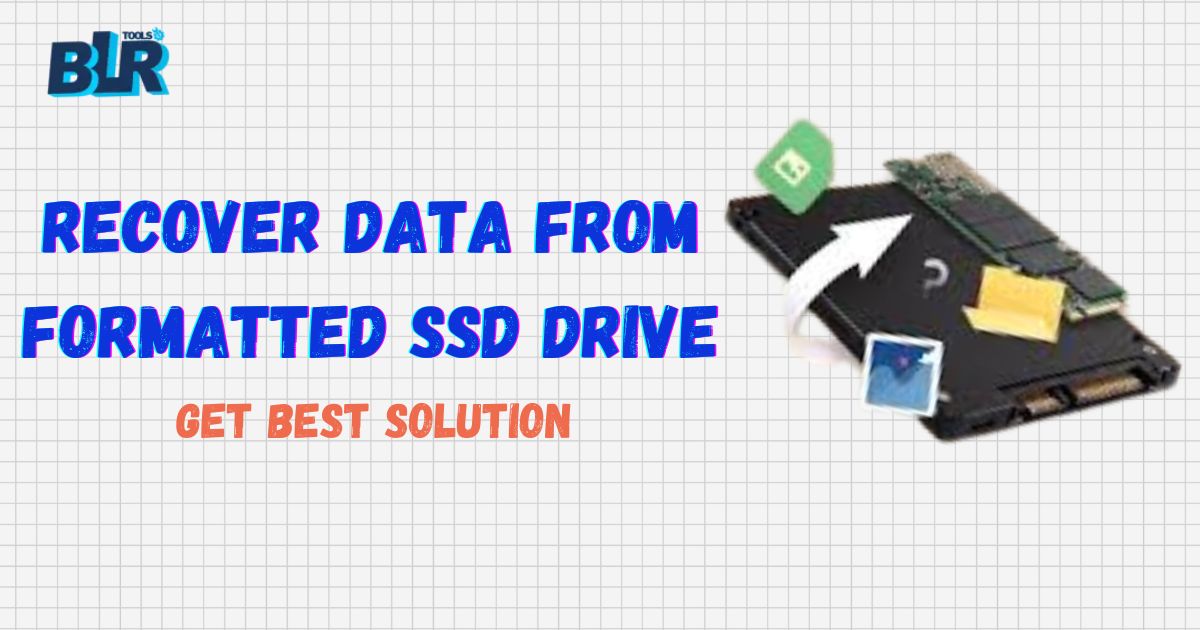Microsoft Access is a popular tool that helps businesses manage small amounts of data. It is easy to use and great for simple tasks like creating databases, forms, and reports. Access also offers some advanced features that make it very dynamic. However, as businesses grow, they often need more than what Access can offer. That is why it becomes important to know when you should convert Access to SQL. Switching to a more powerful system, like SQL Server, helps businesses handle larger amounts of data, work faster, and keep their information secure.
Why It Makes Sense to Convert Access to SQL
Microsoft Access is a good option for smaller projects, but as businesses grow, they can face problems like slow performance, difficulty managing more data, and limited security features. Here are key reasons why switching from Access to SQL is a smart move:
Better Performance:
SQL databases, like MS SQL Server or MySQL, can handle a lot more data than Access. They make it easier to store, search, and manage data without slowing down. For example, if a business has a lot of customer information, using SQL will make it faster to search and update this data.
More Security:
Protecting data is very important, especially when it involves sensitive information like customer records. SQL databases have stronger security features, including data encryption and better controls over who can access the information. This helps keep important data safe and private.
Scalability:
As businesses grow, they need to store more data. SQL databases can handle larger amounts of data, more users, and more transactions than Access. This means that businesses can keep adding more data without worrying about slowing down their systems.
Accessibility:
Converting to SQL makes it easier to use cloud-based solutions. This means that businesses can store their data online and access it from anywhere. A cloud-based SQL database makes this possible if employees work remotely or need to share data between offices.
Leveraging the Dynamic Nature of MS Access
Before businesses switch from MS Access to SQL, it is helpful to understand what makes Access so versatile. Microsoft Access offers many powerful features that make it useful for small to medium-sized data management tasks. Here are some of the reasons why Access is considered a dynamic tool:
- Table Linking and Relationships: Access makes it easy to link tables and set up relationships between them. This helps organize data in a way that is simple to navigate and manage.
- Queries and SQL Support: Access allows users to create queries using a graphical user interface called the Query Design Grid. Users can drag and drop files from source tables, making it easy to design complex queries. Users can also view and edit the SQL code directly, offering both simplicity and control.
- Forms and Reporting: Access provides tools to create custom forms and reports, making it easier for users to enter data and generate useful summaries.
- Macros and VBA Programming: Access includes a built-in programming language called VBA (Visual Basic for Applications), which allows users to automate tasks and add more complex functionality.
- Network Installations and Security: Access has a powerful engine for network installations, with password protection and multi-level user permissions. This means businesses can control who has access to specific parts of the database, adding a layer of security.
These features make Access a great starting point for businesses that need a flexible and powerful database tool. However, as data grows and needs become more complex, switching to SQL can help take these features to the next level.
Moving Your Access Database to the Cloud
When businesses switch from Access to SQL, they can also choose to put their new SQL database on the cloud. This means the database is stored online instead of on a local computer or server. Here are some of the benefits of using a cloud-based SQL database:
- Remote Access: When the database is on the cloud, it can be accessed from any computer or device with an internet connection. This makes it easier for teams to work together, even if they are in different locations.
- Cost Savings: Storing databases on the cloud helps businesses save money. They do not need to spend a lot of money on expensive servers and hardware, which means lower costs for maintenance.
- Stronger Security: Cloud-based SQL databases have built-in security features. This includes things like encryption and automatic backups, which help keep data safe and make sure it can be recovered if something goes wrong.
- Easy to Scale: If a business needs more space for its data, it can easily increase the storage on a cloud platform. This flexibility makes it easy for businesses to grow without worrying about running out of space.
Access Development Can Be Fast
One of the strengths of Access is that it allows for quick development. This is because Access stores all the database tables, queries, forms, and reports in one place, making it easy to manage and update. Here are some ways that Access speeds up development:
- Query Design Grid: Access has a graphical tool that lets users design queries by dragging and dropping fields. This makes it easy for people to create queries without needing to write complex SQL code. If needed, users can still see and change the SQL code directly.
- Easy Table Linking: Access makes it simple to create joins between tables by clicking and dragging fields. This helps users build relationships between different sets of data quickly.
- Built-In Tools: Since Access combines data storage, forms, reports, and programming in one application, businesses can quickly set up and deploy solutions without needing multiple tools.
Steps to Convert from MS Access to SQL
Converting from Access to SQL requires careful planning. The process involves moving data from one system to another and making sure everything works smoothly. Here is how the conversion process usually works:
Assessment:
First, the existing Access database needs to be reviewed. This helps us understand how the database is set up, what information it holds, and how it is used. Knowing this helps plan for the switch to SQL.
Planning:
After assessing the database, a clear plan is made. This includes deciding how the data will be moved to SQL, how the SQL database will be set up, and whether it will be hosted on the cloud. Careful planning helps avoid problems during the move.
Migration:
This is when the data is actually transferred from Access to SQL. It is important to make sure that the data is moved correctly, so no information is lost. The database can also be set up to run better on SQL, using features like indexing and better data structuring.
Cloud Integration:
If the new SQL database will be hosted on the cloud, this step sets up the system so the data can be accessed online. This makes the database available from different locations, which is helpful for businesses with multiple offices or remote workers.
Testing and Support:
Once the data has been moved to SQL, the new system is tested to make sure everything works properly. Testing helps find and fix any issues before they become bigger problems. Ongoing support is also important to make sure the database continues to work well.
Turning Your Access Database into a Web-Based Application
Another great reason to convert access to SQL is that it allows businesses to turn their Access database into a cloud-based web application. This means the database is stored online and can be accessed from any device. Here are some of the benefits:
- Better Collaboration: Teams can work together more easily when they can access the same data from different places. This makes it easier to share information and work on projects together, even if team members are not in the same office.
- Scalability: Cloud platforms make it easy to add more storage or power if the database needs to grow. Businesses do not need to worry about reconfiguring their whole system to handle more data.
- Cost Savings: Moving to the cloud can save money because businesses do not need to invest in expensive servers. They also save on maintenance costs since cloud providers take care of most of the technical work.
- Secure Data: Cloud providers have strong security features, such as automatic backups and encryption. This helps protect business data from hackers and other threats.
For businesses that are growing and need better ways to manage data, converting Access to SQL is a smart choice. It improves performance, adds security, and makes data easier to access. Whether you are looking to move your database to the cloud, combine it with other systems, or make it more accessible to your team, upgrading to SQL provides a strong, flexible platform that can grow with your business.
By planning carefully and understanding the conversion process, businesses can switch from Access to SQL smoothly. This helps them manage data better, reduce costs, and get ready for future growth.
So to convert Access to SQL is a smart move for growing businesses, offering improved performance, security, and accessibility. Whether moving to the cloud or integrating with other systems, SQL provides a scalable platform that supports future growth. The Farber Consulting Group Inc. can ensure a smooth transition tailored to your business needs.




